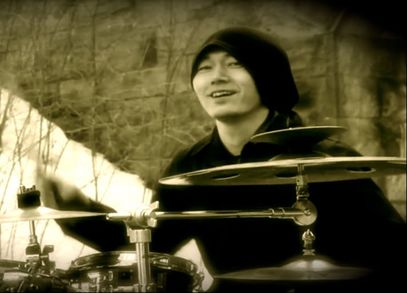
Tetsuya is also an active composer/ arranger and scholar. His works have been performed various professional groups and university ensembles such as Greenville Symphony Orchestra. His analytical work Metric Structure of the Compositions by Miles Okazaki was selected at the Research on Contemporary Composition Conference (ROCC) 2017 at the University of North Georgia. He is currently a doctoral student in Music Composition at the University of Minnesota, serving as a teaching assistant/ instructor.
Tetsuya is one of three winning composers of Zeitgeist's 23rd annual Eric Stokes Song Contest. Named in memory of late composer Eric Stokes, the contest is designed to encourage and celebrate amateur composers throughout the Twin Cities. Tetsuya's winning composition, Samsara, will be performed by Zeitgeist at their annual Playing it Close to Home concert Feb. 23-24 at Studio Z.
Samsara features steady and simple catchy patterns that depart from that symmetry, gradually transforming into complex polyrhythmic ensembles. It ends dramatically, frantically reprising materials from previous sections. Samsara is inspired by the rhythmic concept of Mirrors (2006), jazz guitarist and University of Michigan professor Miles Okazaki’s debut album, and David Lang’s 1993 breakthrough composition cheating, lying, stealing. Both composers are known for their own unique rhythmic concepts. Okazaki’s Mirror is focused on a variety of rhythmic concepts, applied to both jazz and classical contexts. The modern minimalist Lang is known for his concept of rhythmic permutation.
Samsara is based throughout on the simple rhythm and its permutations, which are sometimes shortened and at other times concatenated into longer patterns. The combination of the permutations of basic figures provides a sense of asymmetrical meter, juxtaposed against a group measure of 4/4. Because at least one part always keeps a repetitive rhythmic pattern in common time, music is always polyrhythmic. Thus, each part may appear simple, while ensemble coordination is always challenging. The solo part in the middle section is based on rhythmic mirror form and palindromic melody. Harmonically, Samsara features slash chords, triads with an independent and typically dissonant bass line, and a unique and intricate progression of pentatonic and synthetic modes.
Playing it Close to Home
Studio Z: 275 East Fourth Street, Suite 200, St. Paul
$15 / $10 students & seniors
Tickets/Info
With winning songs from the Eric Stokes Song Contest plus music by local composer Davu Seru, Zeitgeist's annual Playing it Close to Home concert celebrates the wealth of musical creativity found right here in our own backyard. The program includes music by Eric Stokes Song Contest winners Isaac Mayhew, Tetsuya Takeno, and students from Folwell School, plus the world premiere of Davu Seru’s new work Dead King Mother, which tells the story of a near-forgotten event in North Minneapolis and United States civil rights history that has been with Seru since early childhood.


 RSS Feed
RSS Feed
